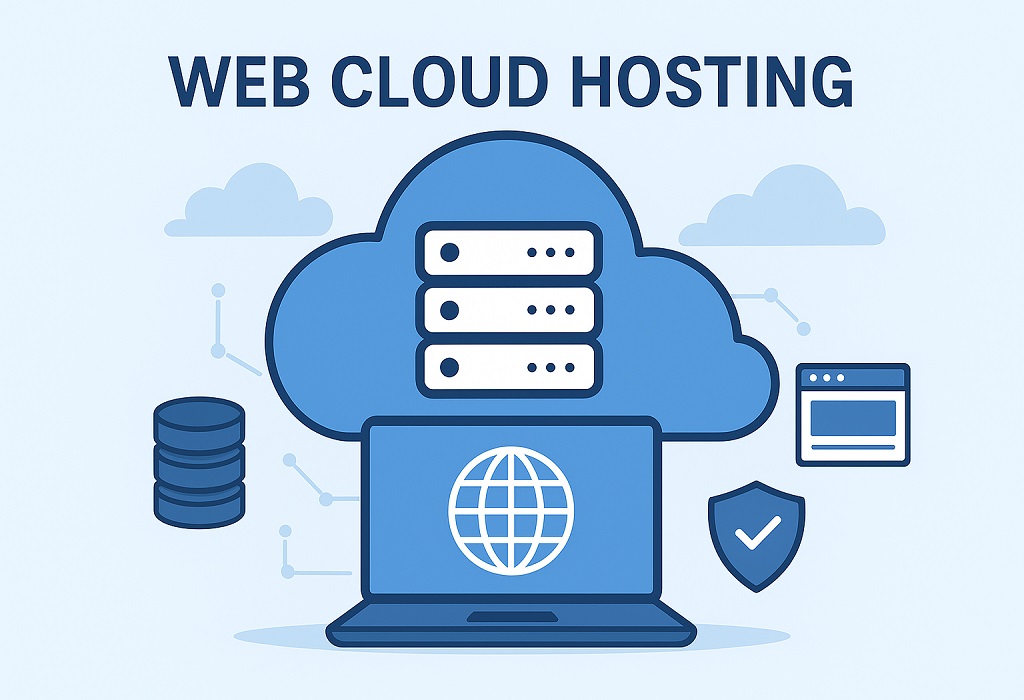The past decade has seen a remarkable acceleration in technological innovation, but few advancements have reshaped the digital world as dramatically as artificial intelligence (AI) and cloud hosting. Separately, each represents a major leap forward. Together, they are redefining the capabilities of businesses, developers, and consumers across every industry. From powering global enterprises to enhancing everyday digital experiences, AI and cloud technology are forming a powerful synergy that is shaping the future of tech.
In this article, we explore how AI and cloud hosting are transforming the tech landscape, why this partnership matters, and what it means for the next generation of digital innovation.
1. The Rise of Cloud Hosting: From On-Premise to On-Demand
Before cloud hosting emerged, businesses relied heavily on physical servers—expensive, inflexible machines that required constant maintenance and upgrades. Scaling meant buying more hardware, hiring more IT staff, and dealing with constant downtime risks. The cloud changed everything.
Cloud hosting introduced a model in which computing resources—servers, storage, databases, networking—could be accessed on demand via the internet. Companies could scale instantly, pay only for what they used, and eliminate the need for physical infrastructure.
Key Advantages of Cloud Hosting
-
Elastic scalability: Businesses can effortlessly scale resources up or down based on traffic or workload.
-
Cost efficiency: No more heavy upfront investments in hardware; the cloud offers pay-as-you-go pricing.
-
Global reach: Applications can be deployed across multiple regions for faster performance worldwide.
-
Business continuity: Built-in redundancy and disaster recovery keep operations running smoothly.
-
Faster development cycles: Developers can spin up new environments in minutes, accelerating innovation.
As cloud adoption spread, major providers like Amazon Web Services (AWS), Microsoft Azure, and Google Cloud Platform (GCP) grew into the backbone of modern digital infrastructure. But what truly elevated the cloud’s potential was the integration of artificial intelligence.
2. The AI Revolution: Data-Driven Intelligence at Scale
Artificial intelligence has evolved from an academic concept to a practical, world-changing force. From natural language processing to real-time analytics, AI helps organizations automate processes, interpret vast amounts of data, and make smarter decisions.
However, AI needs something to thrive: massive computing power and access to large datasets—two things the cloud naturally provides.
Why AI and the Cloud Are Perfect Partners
-
Compute resources: AI algorithms, especially machine learning and deep learning models, require extensive computing capabilities. Cloud GPU and TPU machines deliver this power instantly.
-
Scalable storage: AI relies on enormous datasets; cloud storage expands infinitely to meet this demand.
-
Streamlined model training: Cloud-based AI platforms provide ready-to-use frameworks, tools, and APIs.
-
Continuous deployment: Machine learning models can be updated and deployed in real time.
Without cloud infrastructure, many modern AI applications—voice assistants, streaming recommendations, autonomous driving, predictive analytics—simply wouldn’t exist at scale.
3. How AI Is Transforming Cloud Hosting Itself
The relationship between AI and cloud hosting is not one-directional. While the cloud enhances AI, AI is also transforming the cloud.
AI-Powered Cloud Management
Cloud providers now use AI to monitor performance, predict failures, optimize resource usage, and automate routine tasks. This leads to increased stability, better security, and significant cost savings.
Smarter Security
AI-driven cloud security systems use machine learning to:
-
Detect unusual activity
-
Identify vulnerabilities
-
Predict potential cyber threats
-
Automate incident responses
Given the rise of sophisticated cyberattacks, AI-driven defenses have become essential.
Optimized Infrastructure
AI can analyze system loads and automatically allocate resources, reducing energy consumption and ensuring applications always run at peak performance.
In short, AI isn’t just hosted by the cloud—it’s now helping to run it.
4. How the AI–Cloud Combination Is Transforming the Tech Industry
The merging of AI and cloud hosting isn’t just an improvement—it’s a catalyst for massive transformation across the entire tech landscape.
a. Accelerating Software Development
Developers now rely on cloud-based AI tools to automate testing, generate code, fix bugs, and improve system performance. Tools like GitHub Copilot and automated CI/CD pipelines shorten development cycles dramatically.
b. Enabling Real-Time Insights
Cloud-based AI analytics allow businesses to make decisions instantly. Whether it’s tracking customer behavior, predicting demand, or monitoring supply chains, insights can be drawn from data the moment it’s created.
c. Delivering Personalized Digital Experiences
Streaming platforms, e-commerce stores, gaming companies, and social networks all use cloud-hosted AI to personalize user experiences—recommendations, targeted content, dynamic interfaces, and more.
d. Powering Autonomous Technologies
Self-driving cars, drones, robotics—these technologies collect enormous amounts of data and require huge computational power. The cloud processes and stores this information, while AI interprets it, enabling autonomy at scale.
e. Transforming Healthcare
Cloud-hosted AI supports:
-
Medical image analysis
-
Predictive diagnostics
-
Drug discovery
-
Personalized treatment plans
-
Telehealth platforms
Hospitals and labs can collaborate globally without worrying about physical data storage.
f. Enabling Next-Generation Startups
AI and cloud hosting dramatically reduce entry barriers. Startups no longer need millions to build infrastructure. A small team can deploy powerful AI-driven applications using cloud APIs and affordable compute resources.
5. The Future: AI and Cloud as the Foundation of Digital Transformation
As both technologies continue to evolve, we can expect major shifts in how tech ecosystems operate.
More Autonomous Cloud Platforms
Cloud systems will increasingly manage themselves using AI—adjusting capacity, detecting threats, predicting outages, and applying fixes without human intervention.
AI Everywhere
With cloud delivery, AI will continue integrating into everyday applications—from smart appliances to augmented reality tools.
Hybrid and Multi-Cloud Intelligence
Businesses are moving toward hybrid setups where AI models seamlessly operate across public, private, and multi-cloud environments.
Edge Computing + AI + Cloud
Edge computing pushes processing closer to the user, reducing latency. Integrated with AI and the cloud, this trio will power innovations such as:
-
Smart cities
-
Real-time IoT analytics
-
Industrial automation
-
Immersive AR/VR
More Ethical and Responsible AI
Cloud providers are already investing in AI governance, transparency, and fairness tools to ensure responsible use of data and models.
Conclusion
The combination of AI and cloud hosting is more than a technological partnership—it’s a transformative force redefining how the world builds, deploys, and experiences digital solutions. The cloud provides the scalable infrastructure and tools, while AI adds intelligence, automation, and real-time decision-making.
Together, they are empowering businesses to innovate faster, operate smarter, and deliver more personalized, efficient, and resilient digital experiences. As both technologies continue to evolve, their impact on the tech landscape will only grow—shaping the future of industries, economies, and everyday life.


